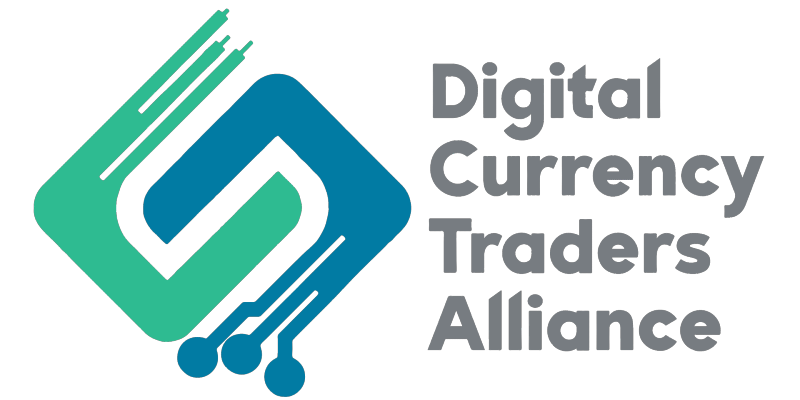Jump to a section:
- Government Outreach and Education
- CA Department of Financial Protection and Innovation
- California Department of Technology
- DCTA Advisory Board
- The Crypto Consumer Legislative Handbook
- The Digital Asset Consumer Bill of Rights
- DCTA Legislative Advocacy Portal
- Reddit r/CryptoCurrency Partnership
- Media Attention
- California Licensing Structure
- Education
- 2023 Legislation
Government Outreach and Education
Since our official launch in November 2021, we have met with the Blockchain staffers for every Californian legislative office that introduced a cryptocurrency or blockchain-related piece of legislation in the current session. Our goal was to introduce them to the Digital Currency Traders Alliance (DCTA) and offer ourselves as an educational resource. One of the main messages that staff has consistently emphasized is the need for more education for both crypto advocates and the legislators/staff who want to learn more about cryptocurrency.
We have also met with committee consultants from each legislative committee that oversees cryptocurrency and blockchain legislation. Ultimately, all of these meetings have been extremely positive. We have developed working relationships with several legislative staffers and have started to work closely with them internally.
CA Department of Financial Protection and Innovation
We have also started working with the CA Department of Financial Protection and Innovation (DFPI). They are the California regulators who oversee money transmitters and both crypto and traditional financial institutions. At their request, we set up a regular monthly meeting to discuss the regulation they are developing for the sector. This has been a crucial partnership to cultivate as California starts to create regulations for the industry.
California Department of Technology: Market Research Guidelines
This fall, we had an advisor to the California State Treasurer request our assistance in working with the California Department of Technology in drafting the CA’s official guidelines for CA State Agencies that want to utilize blockchain technology within their departments.
As of right now, most of our focus is on California, though our overall strategy is designed to be easily replicable in other states. Once we secure enough resources, our goal is to scale up and establish a presence in every state’s capital.
Launched DCTA Advisory Board
To ensure that DCTA promotes sound and balanced policy recommendations, we have been building an Advisory board over the last year that consists of experts from across the blockchain and finance sectors. Our Advisory Board fills any knowledge gaps within the organization.
Learn more about our board here:
The Crypto Consumer Legislative Handbook
This year launched the Crypto Consumer Legislative Handbook, a 25-page all-in-one resource meant to explain cryptocurrency and digital assets in plain terms that any lawmaker can understand. This resource has been sent to legislative offices across the country to help them better understand blockchain technology and what we, as users, want to see in sensible blockchain regulation.
The handbook is a living document and is updated as new Advisory Board members join to give input from their areas of expertise.
Get a copy of the Crypto Consumer Legislative Handbook here:
The Digital Asset Consumer Bill of Rights
We also drafted a Digital Asset Consumer Bill of Rights that contains nine tenets that we consider to be basic rights for all consumers of digital asset technologies. These consumer rights must be kept in mind as legislators begin to legislate blockchain technology.
This is also a living document and will serve as the foundation for the legislative priorities we will have for the coming years.
DCTA Legislative Advocacy Portal
As part of our broader grassroots advocacy efforts, we launched a grassroots advocacy portal at joindcta.org/advocacy where users can quickly:
- Look up all crypto-related legislation in their state;
- Find their local, state, and federal representatives;
- Write and submit a form letter expressing their views on cryptocurrency;
- Tweet at lawmakers on social media and share coordinated campaigns with their networks.
This tool is the central pillar of our ongoing advocacy efforts as we roll out dedicated campaigns on specific crypto-related issues. We would note that resources like this are generally only utilized by Government Relations professionals and are closely guarded internally. We want to give everyday consumers access to the same high-quality resources that lobbyists use.
Reddit r/CryptoCurrency Partnership
We have also formed a formal partnership with /r/CryptoCurrency on Reddit (4.5 million members). This partnership will play a key role in getting information out about our calls to action and our public education. We’ve already participated in one live AMAs this spring and are holding one more before the end of the year.
Media Attention
So far this year, we have been featured by Politico twice in articles related to cryptocurrency regulation. We’ve been able to provide background information to numerous reporters and have been able to establish DCTA as a trusted resource to the news media on all things related to cryptocurrency regulations. We have also started serving as regular guests on the WendyO Show.
California Licensing Structure
We have worked extensively with the committee consultant for Assembly Banking & Finance to provide guidance and information on how the state should create a regulatory licensing structure for the Blockchain Sector. The core premise has been on distinguishing between Custodial and Non-Custodial Actors.
Education
Our Deputy Director hosted a workshop at an educational equity conference where he discussed Blockchain Use-Cases and how the technology can be harnessed to advance equity and serve historically disadvantaged communities.
2023 Legislation
We have begun developing legislation for the upcoming legislative session in California. The three pieces we are pursuing are: Codifying our Digital Asset Consumer Bill of Rights, Disclosures and Reporting Requirements for Cryptocurrency and Token Projects as a way to prevent scams, and Creating a Working Group to Establish Blockchain Certification Curriculum Requirements.
